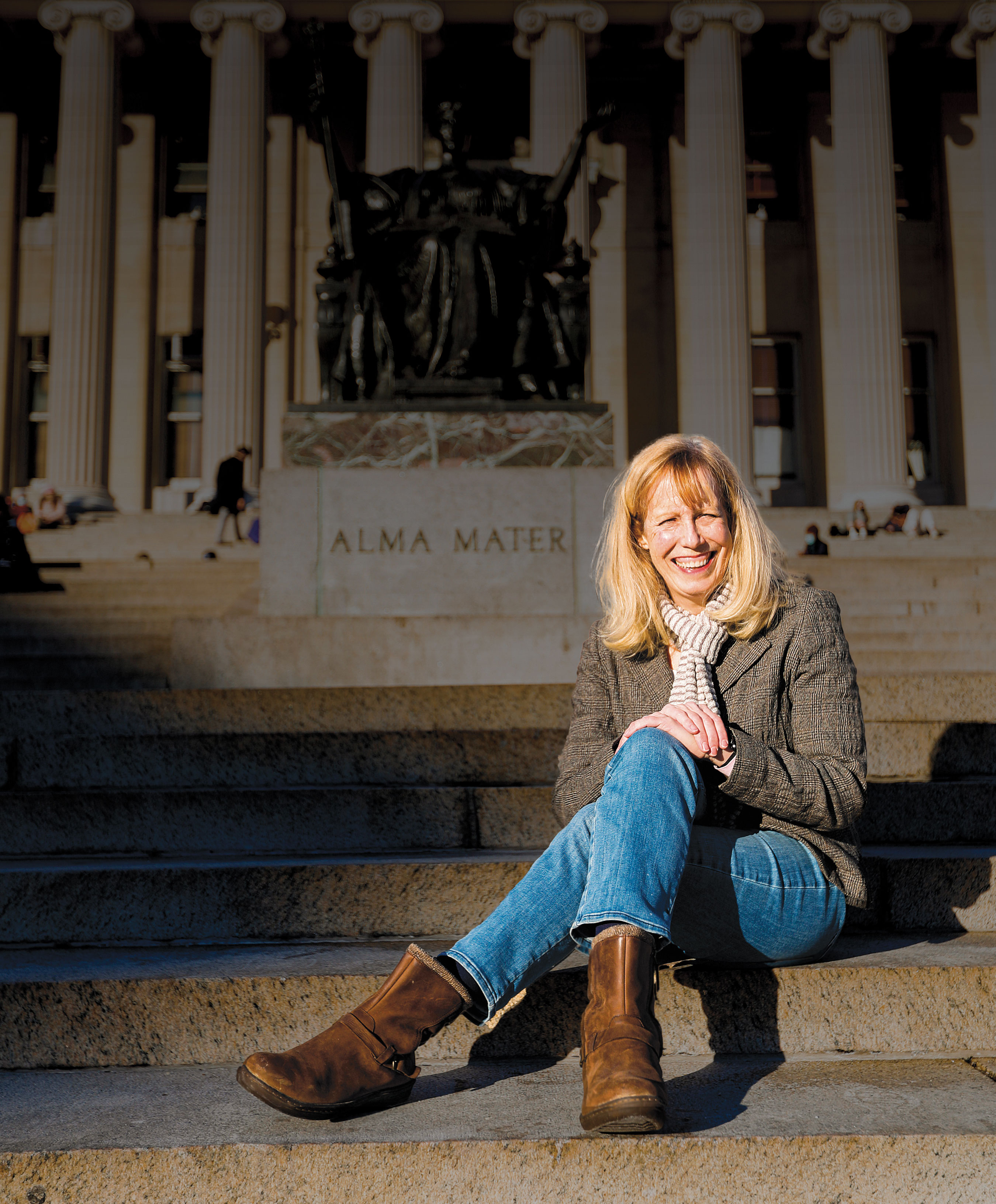Pulteney Street Survey
MONICA WAGNER '78: Remembers the Notorious RBG

BY BETHANY SNYDER
Monica Wagner '78 was a student at William Smith when she first heard of Ruth Bader Ginsburg — then a professor at Columbia Law School — through Professor Emeritus of Political Science Joseph DiGangi. With his encouragement, she began reading Ginsburg's writings and soon applied to attend Columbia to study under her.
"I was very excited about who she was as a lawyer," Wagner says. "We shared a passion for working in the public interest, for doing good in the world as lawyers." In the summer before her second year at Columbia, Wagner began working as Ginsburg's research assistant. Soon after, President Jimmy Carter appointed Ginsburg to the D.C. Circuit of the U.S. Court of Appeals; after earning her law degree, Wagner spent a year there clerking for Ginsburg.
It was the beginning of a lifetime of friendship and mentorship.
The political science major, now serving as deputy chief of the Environmental Protection Bureau in the Office of the Attorney General of New York, maintained correspondence with Ginsburg throughout her storied career, with the justice sharing wisdom, offering advice and providing perspective.
"One of the things she gave me is her view of me," Wagner shares. "She wrote to me that I never let the bad guys get me down. It's not something I'd thought about myself, but it's true. I try not to let the terrible things in the world get me down. She reminded me of that."
Wagner credits Ginsburg's example for helping to shape her career, which includes practicing environmental and employment discrimination litigation with Terris & Sunderland in Washington, D.C., opening her own practice handling real estate transactions and family law matters in Great Barrington, Mass., and serving as a member of the Clinton Administration transition team.
"She inspired me to practice the law the way I still practice law," says Wagner, explaining that Ginsburg "was a very careful legal thinker ... never a person who engaged in anger or strong emotions either as a lawyer or when she was a judge. I litigate for a living and I take a very careful approach. I tell the judge what my case is about, what the facts of my case are and how the law applies to the facts of my case in a very quiet way — which was the way that she taught me."
When Ginsburg's body was lying in state at the Supreme Court, Wagner was one of many of her former clerks invited to stand vigil on the court steps. "It touched my heart to see little girls there," she says. "One woman, probably in her 20s, knelt at the bottom of the steps to honor RBG. That was because she became a cultural icon. It was a wonderful development."
When Wagner was turning 40 and the two arranged to have lunch at a club in Washington, D.C., Ginsburg showed up with a happy birthday banner. "Here she was on the U.S. Supreme Court and she brings a happy birthday banner and tapes it to the wall of the dining room in the club," recalls Wagner. "She was a lovely person in my life. How much I miss her! It was a huge personal loss for me as well as a huge loss for our country."
The last letter Wagner received from Ginsburg, dated Aug. 18, 2020, ended: "Stay well, and continue to thrive in your work and your days." "I cried when I got that, because I knew she was saying farewell," says Wagner. "I cherish her last words to me."
